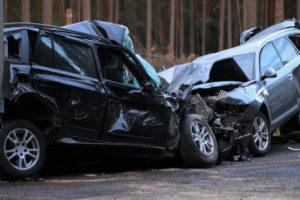
Sorting out who was responsible for a vehicle accident can be complicated. It is not always black and white. There are times when both drivers are partially at fault, and it usually comes down to their negligence.
If you were involved in a car accident, you may have suffered injuries. Those should be your primary concern. But, once you are on the mend, you should contact a car accident lawyer to help you sort out your potential legal claim.
What Is Negligence in a Car Accident?
Negligence is commonly used in the legal profession. Merriam-Webster defines negligence as a “failure to exercise the care that a reasonably prudent person would exercise in like circumstances.” That is an appropriate definition when applying it to negligence in a car accident.
Some examples of negligence include:
- Distracted driving such as talking or texting on a handheld phone
- Looking in the mirror rather than at the road
- Failure to obey traffic laws
- Driving without your prescribed glasses or contacts
- Driver fatigue
- Driving under the influence of drugs or alcohol
While negligence is not the only cause of a car accident, it is the most common one. Other causes include recklessness or the intention to harm.
For a free legal consultation, call (800) 537-8185
Let Your Lawyer Deal with the Insurance Companies
Law enforcement should be called for any traffic accident on a public roadway. Police will try to find out how the accident happened if it was due to negligence or recklessness, and which driver was responsible. So will each driver’s insurance company.
While you should report the accident to your own insurance company, you should refrain from talking with the other driver’s insurance adjuster. In fact, the only people you should discuss your accident with are law enforcement, your doctor, your loved ones, and your attorney. Neither insurance company wants to pay more than necessary for damages from an accident.
It is the job of the adjuster to:
- Try and trip you up, getting you to claim some responsibility
- To get you to settle for as little as possible
Whether you were at fault, partially at fault, or not at fault, let your lawyer deal with the insurance companies.
What Are Shared Fault and Comparative Negligence?
When any driver takes to the road, he or she has a duty of care to protect their passengers and anyone else on the road from harm. Not doing so will be found as negligence unless it was pure recklessness or the driver intended to harm someone else. In any of these three scenarios, any driver is at fault.
Shared fault is when both drivers are partially responsible for an accident most likely meaning they were both negligent in some way.
One Example of Comparative Negligence
Driver A slows to make a right-hand turn to head south at a four-way stop sign but does not come to a complete stop. Meanwhile, Driver B, already traveling south, blows through his stop sign altogether and plows into Driver A’s car. Both drivers were negligent and broke traffic laws.
While Driver B will likely be found mostly at fault, Driver A may also be found to share fault for not coming to a complete stop. In some states, including Louisiana, Mississippi, and Arkansas, this would be considered comparative negligence.
Would Either Party Receive Compensation for Damages?
Through comparative negligence, each driver is assigned a percentage of fault.
In our example, let’s say Driver A is found 20% at fault, and Driver B is found 80% at fault. Driver A’s lawyer can file a legal claim seeking 80% compensation for his or her client’s injuries and property damages.
Driver B may also be able to file for 20% damages against Driver A in Louisiana or Mississippi.
Modified Comparative Negligence
In Arkansas, along with nine other states, lawmakers see it a bit differently. If our scenario took place in Arkansas, Driver B would have no claim. In this case, modified comparative negligence means if a driver is found more than 50% at fault, they have no claim. Up to 49% at fault, and you may be able to receive some compensation.
Specifically, Arkansas law states, “If the fault chargeable to a party claiming damages is equal to or greater in degree than any fault chargeable to the party or parties from whom the claiming party seeks to recover damages, then the claiming party is not entitled to recover such damages.”
Click to contact our personal injury lawyers today
What Is Contributory Negligence and Where does It Apply?
A few states, including Alabama, do not recognize comparative negligence but rather have a contributory negligence law. If a driver is even 1% responsible for an accident, he or she cannot seek damages from the other driver, who in this case would be 99% at fault.
In Alabama, your attorney needs to be able to prove that you had no fault in the accident for you to be able to claim compensation. Otherwise, your own automobile insurance would have to cover your damages.
Dealing with the possibility of shared fault is difficult. You need an experienced car accident injury lawyer to investigate the accident independently before you can file any legal claims. You also need your attorney to be local to the accident site and familiar with state laws and the local roadways.
Why You Need a Car Accident Injury Attorney
What is clear is that developing a legal case following a car accident is complicated. Unless you graduated from law school yourself, you need an experienced personal injury lawyer to investigate and determine if you have a case.
When you hire your attorney, he or she will also deal with the insurance companies, the other party’s lawyers and be ready to fight for you all the way to the courtroom, if necessary.
Morris Bart’s Personal Injury Attorneys Are Here for You
Call the Morris Bart office closest to you. We have experienced personal injury lawyers in our offices across the south who dedicate themselves to our clients receiving proper compensation for their injuries. Contact us for a free consultation. Do it today!
Questions?Call (800) 537-8185
to find a Morris Bart office near you.





